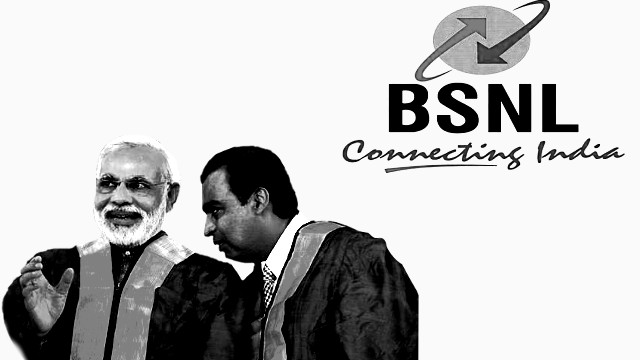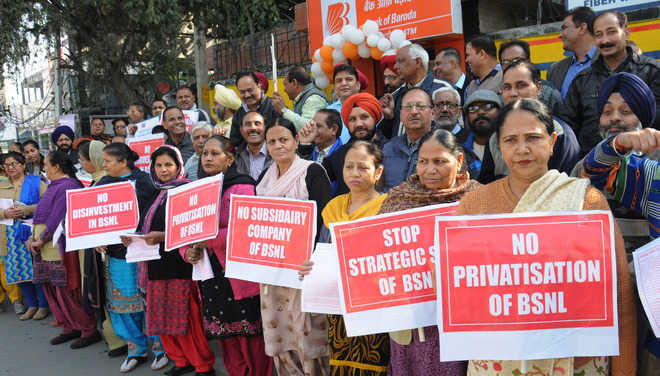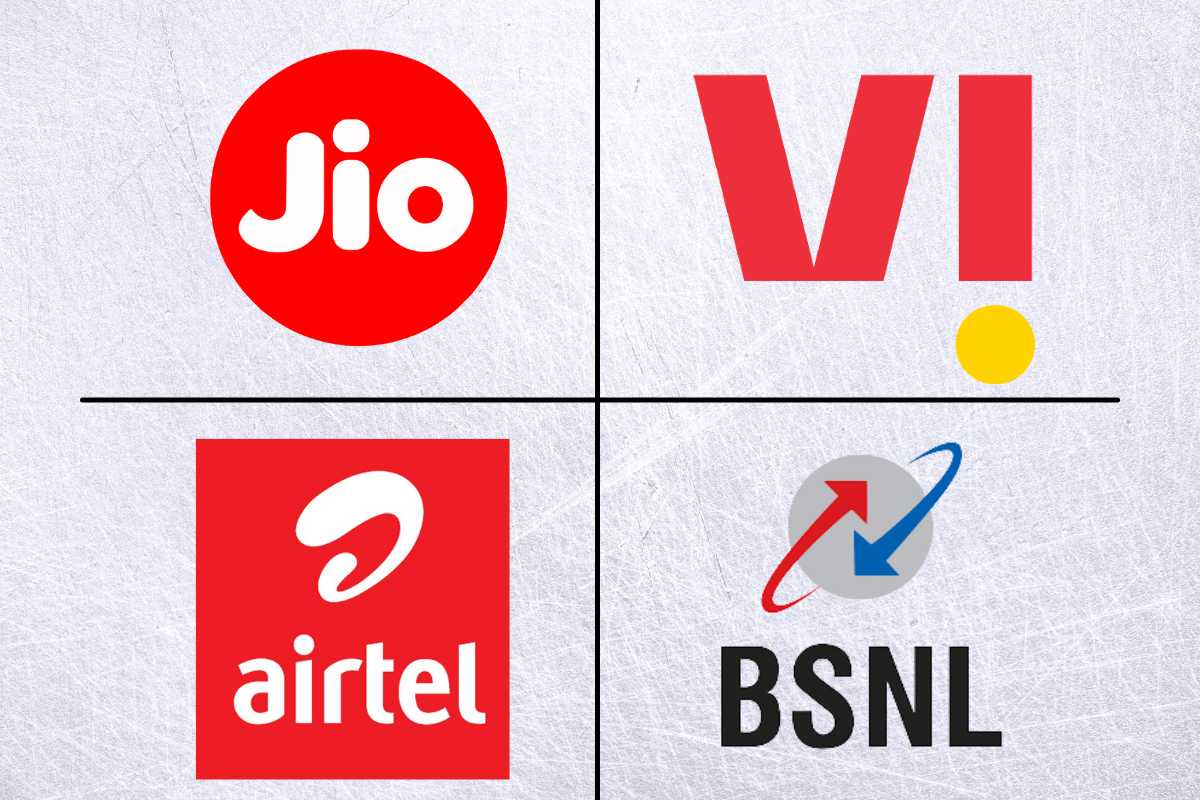BSNL’s FY24 Losses Narrow To Rs. 5371 Cr; BSNL’s Sorry State Caught Between The Devil And The Deep Sea, Jio And Modi Govt’s ‘Atmanirbhar Bharat’ Scheme, Can A Life Line Be Thrown?
BSNL once had a towering presence in the telecom sector but now struggles with a mix of mismanagement, fierce competition, and what seems to be a touch of sabotage. As it fumbles in the shadows of private giants like Jio and Airtel, the Modi government's handling of the situation only adds to BSNL's many woes, which include a rollercoaster of bureaucratic blunders, market mishaps, and a seemingly orchestrated push towards privatization.

BSNL, the proud relic of British colonial telecom history, is still slogging through the modern age with the grace of a bull in a china shop.
It’s almost sad how a company that once ruled the telecom waves is now struggling like a fish out of water, thanks to a perfect storm of mismanagement and, let’s be honest; it seems like a bit of sabotage.
There was a time when BSNL was a shining star in the telecom world, boasting annual revenues that made competitors like Airtel look small. Still, just as it was reaching the peak of its glory, it took a nosedive into a sea of losses so deep that no light seemed to penetrate the depths of despair!
By March 31, 2022, BSNL had amassed a staggering debt, and by October 2023, it had managed to lose a whopping 21.4 million subscribers over 22 months!
However, there is a bit of good news, as state-owned BSNL reported a rise in EBITDA to Rs 2,164 crore for FY24, and its losses decreased to Rs 5,371 crore, according to information provided to Parliament on Wednesday.
Minister of State for Communications Pemmasani Chandra Sekhar, in a written reply to the Lok Sabha, stated that thanks to government support, BSNL/MTNL has been making operating profits since FY 2020-21.
Further, in line with the Atmanirbhar Bharat initiative, BSNL ordered 1 lakh 4G sites to deploy Indian-made 4G technology, which can be upgraded to 5G.
Over the last five years, BSNL’s EBITDA for FY24 increased by 38.8% from the previous year, and its losses decreased from Rs 8,161 crore in FY23 to Rs 5,371 crore in FY24.
A little too late, perhaps, because the big birds have already had there meal with little left for BSNL.

Tough Competition Or Tough Luck
BSNL, once a strong company, is now struggling.
The delay in rolling out 4G has hurt its consumer and enterprise businesses. Without 4G, BSNL is at a disadvantage, and the government’s plans to revive it don’t seem to be working well.
Despite recognizing BSNL’s importance in a tech-driven era, delays in 4G deployment have been significant. Issues include equipment shortages from TCS and core network problems from the Centre for Development of Telematics, C-DoT.
Therefore, it comes as no surprise, and the employee union endorses this fact – BSNL users are switching to private competitors Reliance Jio and Bharti Airtel. The Telecom Regulatory Authority of India (TRAI) reports that BSNL is losing tens of lakhs of customers every month.
On the other hand, BSNL’s wireless broadband user base fell to 20.85 million in November from 21.35 million in October, while Airtel and Reliance Jio gained the most subscribers, with 3.98 million and 3.45 million new users, respectively, bringing their total bases to 255.07 million and 455.82 mil, respectively.
Thus, the employees’ union has urgently asked the Central government to help BSNL quickly launch its 4G and 5G services to stop further customer losses.
Even as BSNL struggles to roll out its 4G network, private companies Jio and Airtel have nearly covered the entire country with their 5G networks. Vodafone Idea, the third-largest telecom company, has yet to launch its 5G network.
- The employees’ union said Jio and Airtel are buying their 4G and 5G equipment from big international companies like Nokia, Ericsson, and Samsung.
- In contrast, BSNL has been told to buy only from Indian manufacturers to support the ‘Atmanirbhar Bharat’ (self-reliant India) policy. The union claims the government knows that no Indian company has proven 4G technology.
- The union also said BSNL could have launched its 4G services 3.5 years ago if the government had allowed it to upgrade its existing 49,300 3G BTSs (Base Transceiver Stations) to 4G BTSs.
Last year, BSNL awarded a Rs 19,000 crore contract to Tata Consultancy Services (TCS) and ITI Limited to deploy its 4G network across 1 lakh sites. The TCS-led group includes the public sector firm Centre for Development of Telematics (C-DoT) and Tejas Networks, which is owned by Tata Sons.
Reportedly, BSNL’s chairman, Purwar, initially told employees that 4G services would launch in October 2024, but recently he said it would be delayed until December 2024.

Hence, the question why the Modi government isn’t supporting BSNL adequately.
Critics suggest the government might be trying to bankrupt BSNL to benefit private companies. Despite challenges, BSNL still exists, though it has fewer users. Private companies are making huge profits with competitive pricing and have scrapped low-price recharge options.
The BSNL Story, Growth and Downfall
BSNL (Bharat Sanchar Nigam Limited) was founded on October 1, 2000, by the Government of India under the Department of Telecommunications, Ministry of Communications.
It is the largest government-owned wireless telecommunications service provider in India, headquartered in Delhi. The Chairman and Managing Director of BSNL is a government civil servant from the Indian Communication Finance Service or a central government engineer from the Indian Telecommunications Service.
As of April 30, 2024, BSNL Mobile had 88.94 million subscribers, making it the 4th largest mobile network in India and the 25th largest globally. BSNL started strong and made profits in its early years but began losing money after 2009. It has recorded losses consistently for the past thirteen years.
History
BSNL’s origins date back to British India. The British established the first telegraph line in India in 1850, connecting Kolkata (then Calcutta) and Diamond Harbour.
By 1854, the British East India Company had laid telegraph lines across the country and opened the service to the public. In 1855, the British Imperial Legislative Council passed the Indian Telegraph Act.
After India gained independence in 1947, the Post and Telegraph departments were separated in the 1980s, leading to the creation of the Department of Telecom. This eventually resulted in the establishment of government-owned telecom enterprises, including BSNL.

Why BSNL Failed
BSNL was founded at the turn of the century and initially grew rapidly, reaching annual revenues of about INR 40,000 crore in March 2007, compared to Airtel’s INR 18,420 crore.
However, within two years, BSNL’s profits dropped by 81%, and its revenues fell by 6%. By March 31, 2022, BSNL had accumulated losses of INR 57,671 crore, according to Devusinh Chauhan, Minister of State for Communication.
By the end of October 2023, BSNL had lost 21.4 million subscribers over 22 consecutive months, reducing its total subscriber base to 92.87 million.
No Help
In 2005, BSNL had a market share that was the envy of competitors and had a 21% market share, similar to Bharti Airtel.
However, by 2009, it began losing ground and by 2022, its market share had dropped to just 7.9%. The remaining 92% of the market was controlled by Jio, Vodafone Idea, and Bharti Airtel.
So what happened?
Then came Jio, crashing the party with its jaw-droppingly low tariffs. Jio’s entry was like watching a bull do a high dive into a kiddie pool – it completely disrupted the market.
BSNL, in its infinite wisdom, decided to keep its prices unchanged while everyone else was slashing theirs.
The result?
BSNL’s average revenue per user dropped faster than a stone in a pond, from INR 118 to INR 53. Well played, indeed!

Bureaucratic Wonderland
The sweet smell of bureaucracy – it’s what makes the world go round, or at least, it makes BSNL spin its wheels.
The company’s slow decision-making and endless red tape ensured that it was always a step behind; it’s almost as if BSNL was in a race to the bottom and somehow managed to win.
High Employee Costs
As if fighting competition and navigating bureaucracy weren’t enough, BSNL also had the pleasure of dealing with sky-high employee costs.
It’s like having a leaky bucket while you’re trying to carry water uphill, as around 55% to 60% of the company’s expenses went straight into employee maintenance.
Modi Government Is The Unsung Hero of Private Telecom
And let’s not forget the Modi government – it’s almost as if they’ve taken a personal interest in making sure BSNL’s journey is as bumpy as possible.
The government seems to be doing everything in its power to ensure BSNL doesn’t succeed, and private players, especially Jio, get to enjoy the limelight.
One could almost think that Jio is the government’s favorite child, given how well it’s been treated.
Thus, BSNL’s story is tragic; that includes overambitious competitors, a labyrinthine bureaucracy, and a government that appears to have a vested interest in ensuring that BSNL never quite makes it back to the top.
It’s a show that’s been running for years, and it’s clear – the drama is far from over.




